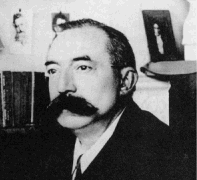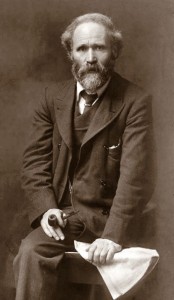Solidarity with the Martyrs
Neither Marx nor Lenin but Hardie and Blatchford!
EARLIER this year the National Liberal Party promoted a campaign to celebrate Magna Carta Day on June 15. The anniversary of the signing of the Magna Carta is rightly known as ‘Liberty Day’.
As part of our celebrations we hosted a Liberty Literary Week. Here we featured a series of thought-provoking articles all dealing with various aspects of liberty and freedom.
One of these articles – The Tolpuddle Martyrs and Freedom – took a brief look at the great fight to establish trade unions.
In this follow-up article one of our members (and a Trade Unionist) takes another look at the Tolpuddle Martyrs and ask what they would make of the establishment trade unions of today?
THROUGHOUT the course of British history there have been groups of individuals and organisations that have influenced others. It’s hard to think what our country would be like today if it was not for the efforts of people such as the Chartists and the Suffragettes. Another group of men which helped change the course of history became known as the Tolpuddle Martyrs. Their efforts and sacrifice helped to lay the foundations of the modern Trade Union Movement.
The Martyrs were six men from the village of Tolpuddle in Dorset who founded the Friendly Society of Agricultural Labourers to protest against the lowering of agricultural wages in the 1830’s. They refused to work for less than 10 shillings a week, although by this time wages had been reduced to seven shillings a week and were due to be further reduced to six shillings. The society was led by local Methodist preacher, George Loveless, and it operated as a trade specific benefit society – elements which are now considered to be the prominent roles of Trade Unions.
The Whig government, which feared a renewal of the agricultural agitation of 1831, supported a decision to arrest the men under an Act of 1797 which forbid ‘unlawful oaths’. Subsequently the men were sentenced to seven years transportation to Australia. As word of their arrest and sentence spread, the reaction of the public turned the men into heroes. After continuous protests the sentence was finally remitted in 1836.

Bob Blatchford
The original ‘Society’ established by the Martyrs was about equality and fairness forall. In the 21st century questions are now being asked as whether these same values still exist with the modern Trade Union movement. Growing numbers of Trade Unionists are becoming dismayed at the lack of representation their union offers them, with money from their subscriptions being donated to overseas causes and the six figure salaries of some union executives. Is the modern Trade Union movement something the Tolpuddle Martyrs would have approved of, or has it evolved into something which would make them turn in their graves?
Amongst other things, trade unionism should be about trust and honest representation. With six figure salaries of ‘career Trade Unionists’ and funds being directed into overseas causes we have to question whether some unions can be trusted and whether honest representation is being offered.
Outside of the main Trade Union movement, other unions which do not pay their executives vast sums, such as the Workers of England Union and Solidarity do exist. The latter is the most progressive in its vision.

Keir Hardie
Solidarity believes in one big union uniting workers of all trades. This concept was originally thought of by Robert Owen who in 1834 launched the Grand National Consolidated Trades Union in an attempt to unite all the workers in one organisation. Ideologically Solidarity takes a position that is nether left wing or right wing, and sees capitalism and communism as different sides of the same coin. It is opposed to all forms of discrimination, defending the rights of members victimised in the workplace because of their race, sexuality, religion, gender or political affiliation.
Solidarity is influenced not by Marx or Lenin, but by early patriotic socialists such as Keir Hardie and Bob Blatchford. It shuns the extremist influences of the left and right and looks to Social Credit, Distributism, National Syndicalism, Guild Socialism and Libertarianism. The campaigns of the Levellers, Chartists and the Tolpuddle Martyrs are also of interest to the union. Fundamentally though, its prime aim is not to promote any particular ideology but to support the rights and liberties of its individual members in the workplace.
The Solidarity Trade Union is also a democratic union, where each individual member has a real voice. It is also a nationalist union, where funds raised via donations and subscriptions do not go towards the luxuries of its officers or on foreign causes – but are actually spent on fighting for its members in the UK.
Imagine if the Tolpuddle Martyrs were alive today. Would they swear an oath to an establishment union – which will pay fortunes to executives and sending large chunks of members’ subscriptions abroad? Or would they support a union which simply defends the rights of all workers and spend the vast majority of its subscriptions doing exactly that?
Which union do you think they would choose? Obviously the latter, which is why we fear the Martyrs must now be turning in their graves!
To read The Tolpuddle Martyrs and Freedom as it appeared on the National Liberal Party’s Liberty Literary Week, click here: http://nationalliberal.org/?p=2461
For a pdf copy of the Solidarity publication, British Worker, contact the union at solidaritygb@aol.com
Date: August 2, 2011
Categories: Articles































